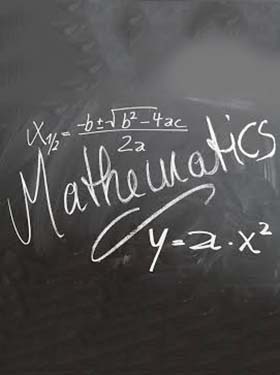Earlier this month, we had the pleasure of attending and presenting at the 43rd American Mathematical Association of Two-Year Colleges (AMATYC) Annual Conference in San Diego, CA. AMATYC is a national association focused on mathematics instruction in the community college context. This year’s conference theme was “Have a Prime Time,” drawing a connection to 43 being a prime number. The 3-day conference provided the perfect space for practitioners and researchers to share and reflect on the prevalent issues of and advancements in mathematics education and instruction. In the keynote address, titled Is it 1957 or 2017?, Scott Adams of Chandler-Gilbert Community College issued a call to action for instructors and faculty to use targeted strategies when educating today’s learners. He issued three challenges: 1. Stop teaching math and start teaching students, 2. Help students to make sense of mathematics and to develop problem-solving skills, and 3. Make memories.
This conference was unique in that it valued both research/scholarly work and practitioner work. For example, the research sessions were all scheduled separately from the practitioner sessions to allow those who were interested in both formats the opportunity to experience both without having to choose. The conference sessions focused on a variety of topics including but not limited to curriculum redesign, instructional strategies and technology, placement and assessment, developmental mathematics, and research,. As researchers, the conference provided an opportunity to understand the issues we study from a practitioner lens and highlighted some of the trends faculty see and experience in the classroom. Many of the session presentations were practitioner based and discussed practices implemented in the classroom and the impact on student behavior and learning outcomes. The presentations provided insight as to how faculty implement research recommendations in the classroom.
The Transitioning Learners to Calculus in Community Colleges (TLC3) research team contributed to the conversation about mathematics through two sessions. The first session, titled Transitioning Learners to Calculus in Community Colleges, focused on sharing preliminary findings from a national survey of mathematics department chairs at public 2-year colleges. In the session, attendees were provided select findings from the survey and asked to share their thoughts regarding the claims and suggestions of the data as it related to the Developmental to Pre-calculus to Calculus II (DPC2) sequence in community colleges. In reviewing the findings, attendees made interesting connections between what mathematics chairs stated was happening and what they experienced within their institutions. Most conversation focused around the improvement priorities and professional development opportunities, as well as faculty distribution between the levels of the DPC2 sequence.
The second session, Strategies to Improve STEM Student Transition to and Through Calculus, was more practitioner based and provided attendees with the opportunity to assess their own institutions’ progress in improving underrepresented students success in the DPC2 sequence using findings from the national mathematics chair and faculty surveys. Attendees were asked to assess their institutions in the areas of math placement, course offerings and instructions, and student support. We also shared data regarding professional development, which highlighted the need for training on micro-aggressions, implicit bias, and validating practices. Surprisingly, attendees connected with this, which sparked a conversation on the relationship between racial micro-aggressions and implicit bias.
Attending this conference was a great experience, and we look forward to returning next year to present on the next phase of the TLC3 project. Those interested in mathematics education in 2-year colleges would definitely benefit from attending, regardless of position as a researcher or practitioner. There is something for everyone at AMATYC. Next year’s conference, themed “The Main Attraction,” will be held November 15th- 18th, 2018 in Orlando, FL. To learn more about AMATYC or to view the conference proceedings, please visit https://amatyc.site-ym.com/page/2017ConfProc. Additional information on the Transitioning Learners to Calculus in Community Colleges (TLC3) project can be found at https://occrl.illinois.edu/tlc3.
